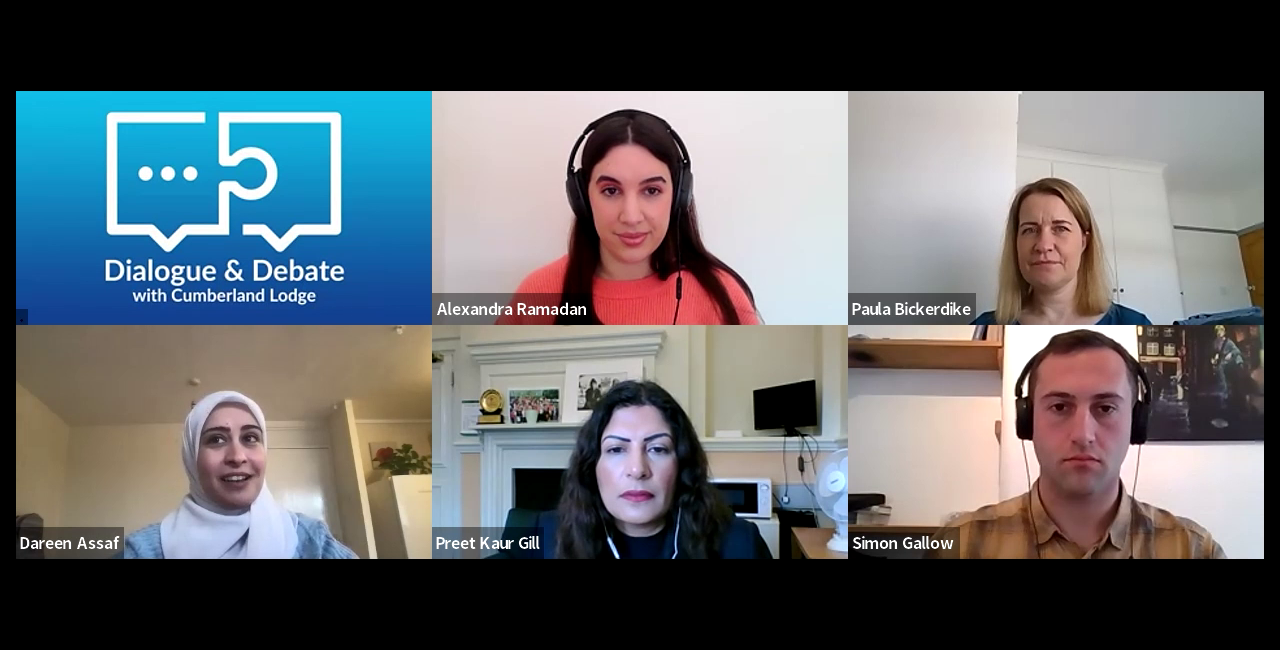On Wednesday 9 March 2022, Cumberland Lodge hosted a webinar as part of the Dialogue & Debate series honouring International Women’s Day. The webinar focused on the campaign theme #BreakTheBias and explored the barriers and biases encountered by women in leadership roles.
The guest panelliests were:
- Detective Superintendent Paula Bickerdike – West Yorkshire Police
- Simon Gallow – Advocate and HeForShe Lead at UN Women UK
- Preet Kaur Gill MP – Labour and Co-operative Member of Parliament for Birmingham, Edgbaston; Shadow Cabinet Minister for International Development
- Dr Alexandra Ramadan – Postdoctoral Researcher, University of Oxford
Hosting the webinar, Cumberland Lodge Fellow Dareen Assaf introduced the discussion by asking the audience if they felt their organisation adequately supported women in leadership, via an interactive poll. Responses were mixed, with 31% voting yes, 13% opting for no, and the majority of the audience, 56%, voting ‘somewhat’.
Barriers and struggles
Speaking about the challenges encountered by women in the workplace, Dr Alexandra Ramadan commented on the frustration women feel as they endeavour to show they deserve to be included, and the responsibility they take on to ensure they are welcomed in work spaces. She pointed out that problems persist as, contrary to what we would like to believe, people still fail to recognise the need for women’s inclusion; this is a problem that exists at all ages and levels.
Considering her own experiences, Preet Kaur Gill stated that the obstacles women face in public life are universal, with women often being on the receiving end of sexism, prejudice and discrimination. She reiterated that the pandemic has highlighted the many barriers that women have had to overcome to fully participate in public life, and the economic fallout of the pandemic has fallen disproportionately on women, for example when it comes to childcare responsibilities.
Additionally, she explained the disparities we see in terms of women in leadership are a result of structural issues that hold women back, from cultural norms and expectations, to social policies and violence against women. Moreover, the time taken for changes to be implemented to help women in these situations enforces the underrepresentation of women in sectors and results in women being disadvantaged, further affecting their self-confidence to pursue senior positions.
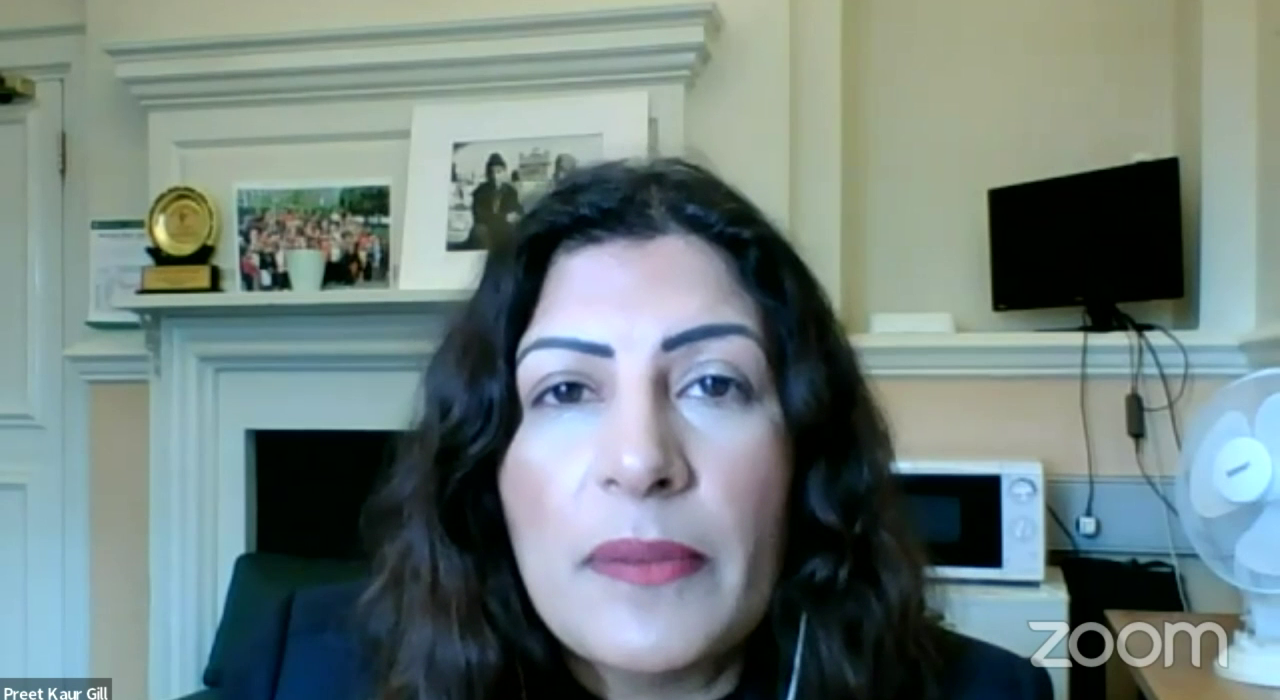
Factors affecting women’s self-confidence
Detective Superintendent Paula Bickerdike described many factors that affect women’s confidence to seek senior positions, including home admin, caring responsibilities, mental load and invisible structures in the workplace, all of which have been exacerbated by the pandemic.
Reflecting on personal experience, Paula spoke of the challenges and responsibilities of balancing motherhood with a senior job role, highlighting that women have a different experience of this battle compared to men. She described that the challenges of women taking on the majority of caring responsibilities can consequently seep into their confidence at performing a job role.
Furthermore, she explained how a supportive work environment that considers a woman’s world outside of work is crucial in affecting women’s ability to succeed. Paula also spoke of how important it was that organisations take more initiatives to tackle invisible processes present in the workplace which affect women’s likelihood to gain leadership roles.
Women against feminism
When discussing how to approach women against feminism, Alexandra suggested engaging in conversation, listening and approaching issues with empathy as key. She referred to the concept of ‘calling in,’ where one uses conversation, compassion and patience to change the problematic behaviour of peers, as opposed to ‘calling out’ publicly or for others to witness. She explained that sharing personal experiences to find common ground and talking through the benefits of feminism can prove helpful.

Preet pointed out the cultural differences in viewing feminism and gender equality, and how challenges and barriers can differ according to a woman’s background. She explained how it is important to consider the inability of some women to speak out because human rights violations can lead to difficulties in expressing or understanding opinions on feminism.
Mandatory gender pay gap reporting
Simon Gallow praised gender pay gap reporting for raising awareness of inequality issues, but also explained how data can draw attention away from broader issues such as safety and sexual harassment in the workplace. Preet also highlighted that recently only a quarter of UK companies had published data on the gender pay gap, and that processes need to be in place to enforce reporting from all organisations and to hold employers and the Government accountable when it comes to inequality.
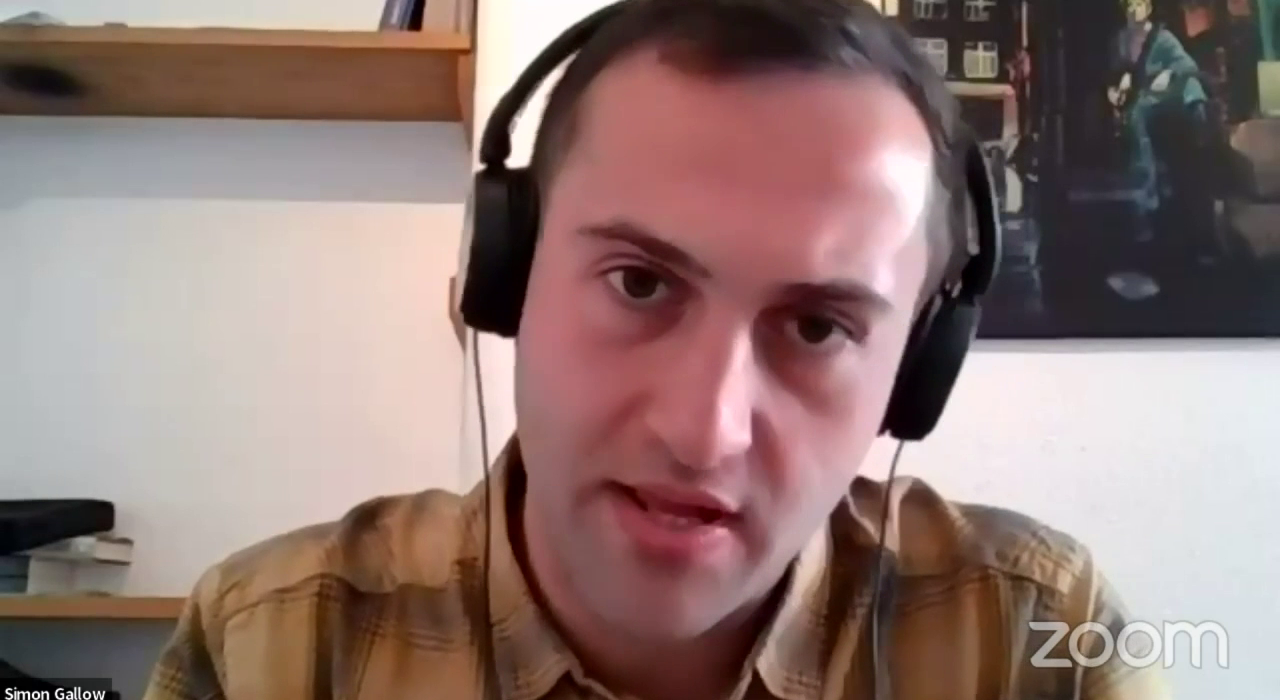
Support systems promoting women’s leadership
When speaking about support systems already in place to support women’s leadership in workplaces, Alexandra described the importance of women-only fellowships, training courses specifically for women and women mentoring, as crucial sponsorship for helping women through their careers.
Paula explained the use of formal and informal networks to support women currently working in the police force. She also mentioned the use of running campaigns around women joining the police which looked at the barriers to policing for women and why it may not be a desirable career. Simon listed performance targets, skills-based assessments in recruitment and shortlists as integral processes that accelerate women into leadership positions.
Male allies supporting women’s progression
Speaking about the importance of supporting women’s progression, Simon referred to the HeForShe movement and highlighted the importance of educating and encouraging men and young boys on gender equality to create long term sustainable changes. Simon spoke of his passion to speak out about these issues, stating that gender equality was not just a women’s issue and was often a result of masculinity.
Additionally, he stated that equality for women meant equality for everyone, for example making it easier for men to follow non-traditional career paths. Simon urged that despite the progress already made, urgent change was still needed to address gender inequality issues, especially since these inequalities have been exacerbated by the recent pandemic.
To create change, Simon explained that males have to be allies either as individuals or as leaders in organisations by actively being involved. He stressed the importance of men educating themselves by speaking to all groups of women, amplifying the voices of women rather than speaking for women and also changing culture by speaking out against gender inequality.
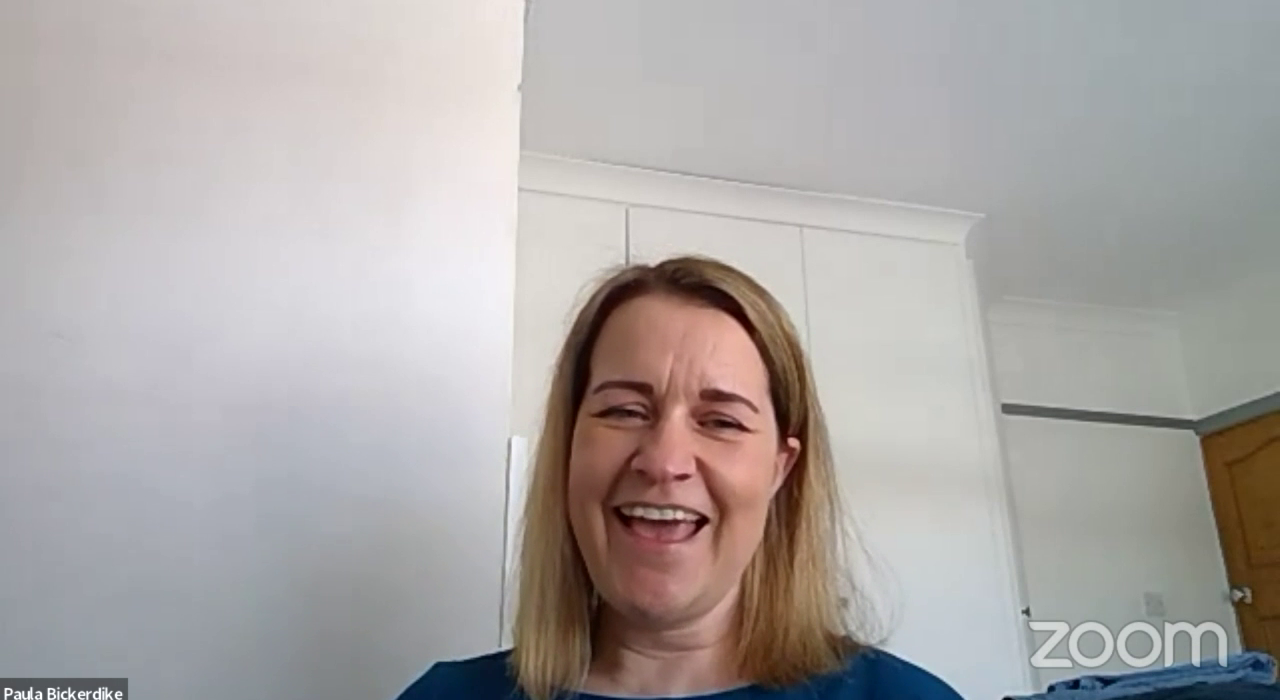
Creating opportunities and an attractive culture for women
Referencing the existing cultural problem, Alexandra emphasised the importance of intersectionality, which refers to the acknowledgment that everyone’s experience of discrimination and oppression is unique due to gender, race, class, physical ability, and other protected characteristics.
She explained the need to include all groups of women in spaces historically known for being largely represented by White men, primarily due to the fact that different challenges are faced by different groups of women. Alexandra made clear how everyone can work together to create opportunities and help build more inclusive environments where women feel included and welcome – for example, by having equal representation of women on a panel at a conference.
Preet described how representation drives change, and that clear targets and policy initiatives that enable gender parity in organisations need to be in place to allow equality. She explained how female representation in politics in particular was not just a case of fairness and equality but allows active encouragement of other women to participate in democratic processes.
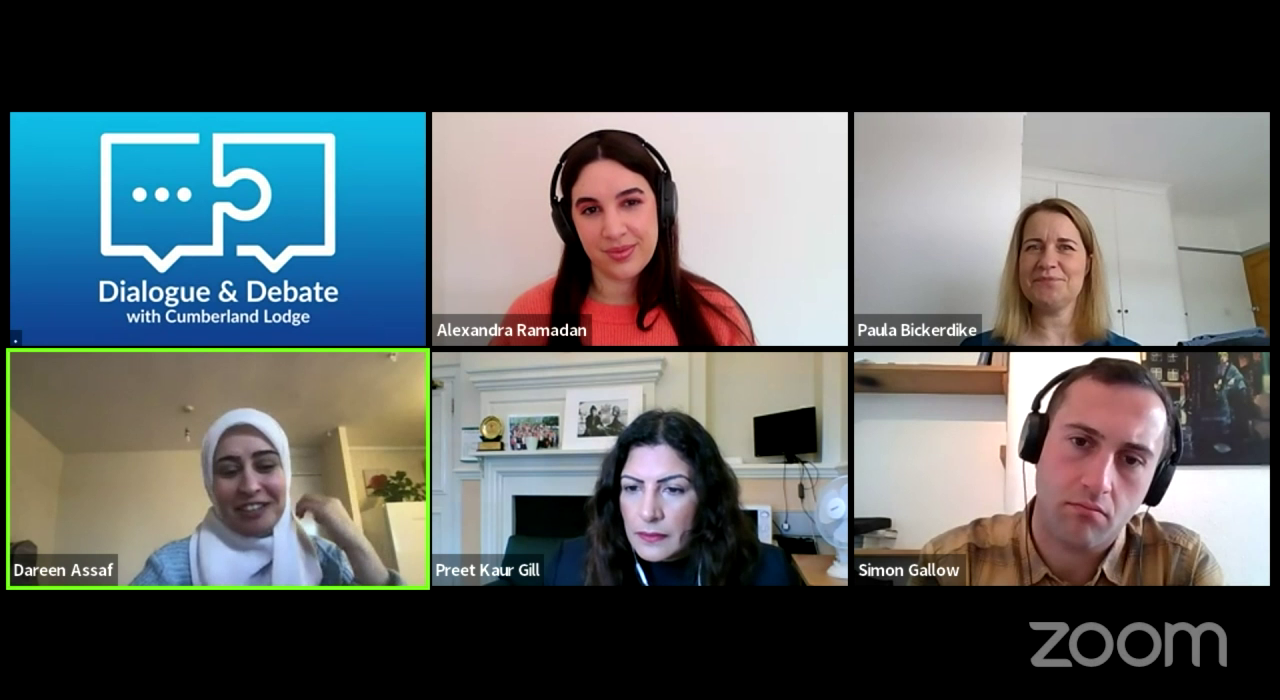
Female role models and coaching
Paula described the benefits of having female role models and coaches, and how seeing another woman hold a particular position in that workplace/organisation is encouraging for others to pursue the same or similar roles and know what they want to achieve for themselves. Preet also emphasised the value of having mentors, not only when seeking senior positions but in terms of personal growth e.g. identity, self-development and dealing with pressures in workplaces.
Paula also explained that although her role as a qualified coach has proved beneficial, this process can lead to overburdening women with additional work, and that men should also play their part in easing some of the responsibilities when it comes to coaching and mentoring women. Simon pointed out that although hugely beneficial, coaching should not be used as a substitute for implementing structural changes in organisations to aide women’s equality.
Personal reflection
Ending the discussion, the panellists reflected on what kept them going when they felt deflated about slow changes in this area. Paula mentioned it was important to remember the small wins, and that small successes pave the way to larger successes. Preet looked at her resilience, faith and family as sources of strength when battling through frustrations and reiterated the need for more social movements and more voices speaking on causes that matter.
I feel these conversations have opened everyone’s eyes to some of the challenges and setbacks encountered by women daily. The struggles faced by many women is both unique to the individual universal to women everywhere. I believe that support for women’s leadership and equality is integral to everyone and therefore needs to be addressed by all.


